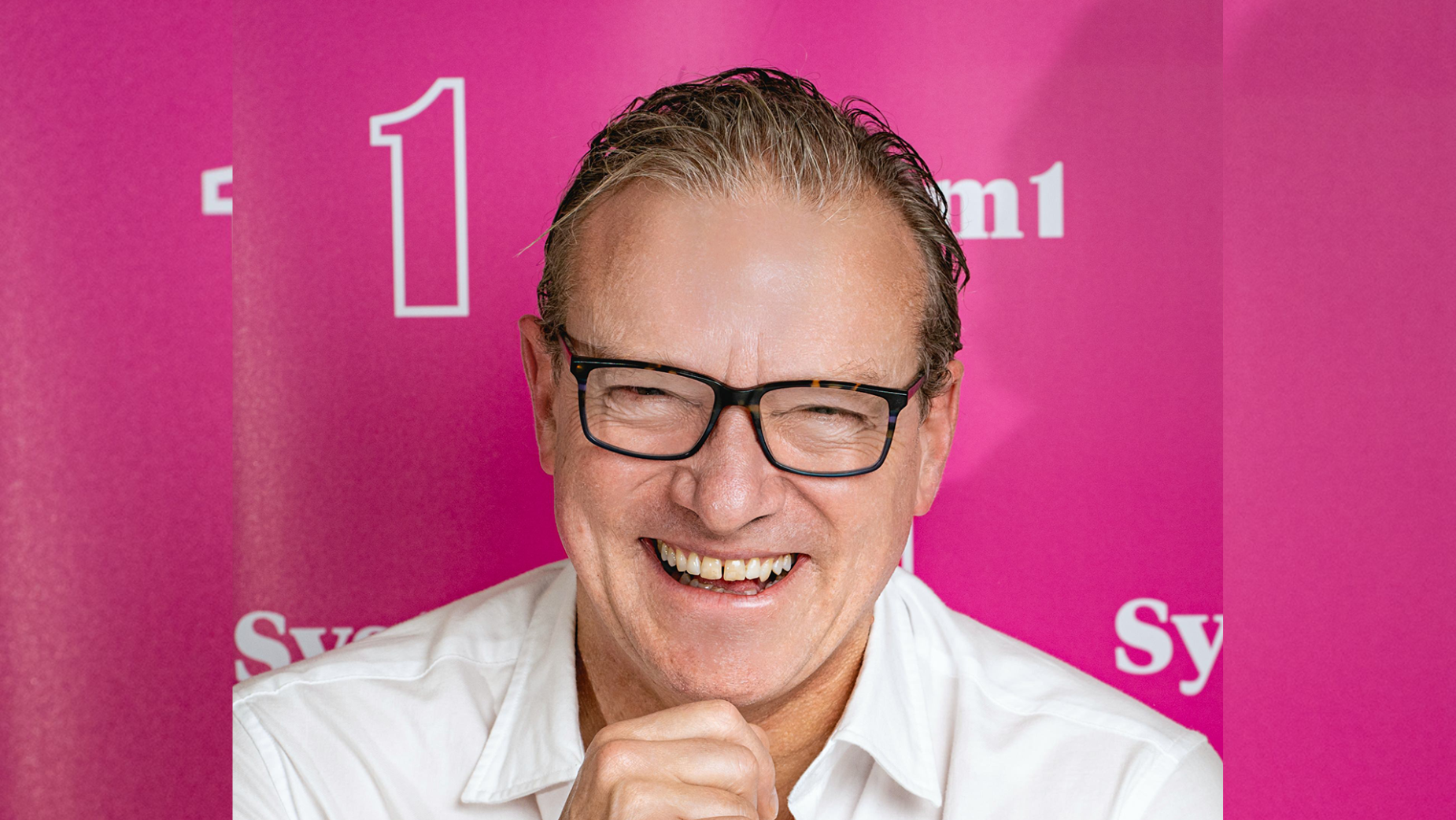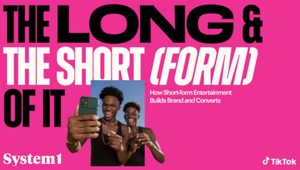
Bossing It : John Kearon on 'Keeping It Real, Leading From The Front and Admitting Mistakes'

John founded BrainJuicer PLC in 2000 with the idea of applying behavioural science to market research. This venture created and validated radical new methods to better predict and improve ad and innovation success.
In the early days of BrainJuicer, John convinced Unilever to invest in the business and encouraged hundreds of multinationals to ditch the traditional and switch to the radical.
Over the years, BrainJuicer has been voted the ‘Most Innovative Market Research Co.’ many times and named the ‘EY Emerging Entrepreneur of the Year’.
After controversially changing the company name on April Fool’s Day 2017 to System1 Group PLC, John wrote ‘System1 - Unlocking Profitable Growth’ with Orlando Wood and Tom Ewing and later supported Orlando Wood’s seminal, best-selling IPA books; ‘Lemon’ & ‘Look out’. After the name change, John narrowed down and automated the company's many products to three: Test Your Ad, Test Your Brand and Test Your Innovation.
In 2022, John handed the CEO reins to James Gregory and spent 2023 expanding the business to the United States. Currently, John is in the UK inventing again and leading System1 Futures. John’s career started as a Unilever marketer in 1986, then he joined Publicis/FCA as a planning director, founding Brand Genetics in 1996 before founding BrainJuicer PLC (now System1 Group PLC) in January 2000.
In his eyes, the recipe for success includes imagination, creativity, courage, obsession, resilience, adaptability, self-belief, commitment, care and gratitude to all, willingness to admit mistakes, the ability to go without sleep, and a touch of madness.
LBB> What was your first experience of leadership?
John> If you mean bossing people about, probably not until I was 41 when System1 went public, and even then, I was never comfortable doing it or good at it.
If ‘Bossing It’ includes initiating playful, rebellious ideas that others choose to join in with, then as far back as I can remember.
Like, tormenting a mean neighbour (age 7)
Lighting cigarettes off the holy candle at my Catholic boarding school (age 11);
Sinking a toilet into the school swimming pool the night before sports day, giving parents a chuckle between races (age 15);
Guinness Book of Records for most people kissed in 4 hours (age 19 – it was for charity);
And many more since becoming a sensible, responsible marketing professional, like finishing my ‘Emotions in Advertising’ conference talks, demonstrating ‘surprise’, by mooning the audience (age 37 & subsequently banned by my Board from doing again).
LBB> How did you figure out what kind of leader you wanted to be – or what kind of leader you didn’t want to be?
John> I am not the command-control bossy type. Probably because I’ve always resented being on the receiving end of that style of leadership and perhaps also because I’m really bad at it. The only style of leadership that comes naturally, is leading a band of fellow resistance-fighters. I like encouraging new ways of thinking and going against the grain – something that overly-disciplined leadership lacks.
LBB> What experience or moment gave you your biggest lesson in leadership?
John> It was when I had my first employees, rather than partners, and felt a work-related responsibility beyond myself (I’d felt the same in my personal life three years earlier, when my first child Oli was born).
If you’ll indulge me with a second more recent one, it was handing over the CEO reins to my number two, James Gregory, at the end of 2022, and adapting to being his number two. I had to ensure staff knew he was now the boss and worked hard to resist any backseat driving while still making supportive, meaningful contributions. There’s inevitably a moment for the ‘funny founder’ of a business to park their ego, let go and hand the leadership to someone more capable of scaling the business.
But that rarely happens voluntarily and often, the decision is made for them by their Board/Partners/Investors, who find a way to force them out.
I guess what I am saying is - it was an act of leadership, to give up the leadership, and 18 months later, my reward has been the company’s stellar growth and being back in my happy place leading our innovation.
LBB> Did you know you always wanted to take on a leadership role? If so, how did you work towards it and if not, when did you start realising that you had it in you?
John> Absolutely not, at least in the conventional definition of leadership. It was not until others chose to join Brand Genetics and then BrainJuicer/System1, that the penny finally dropped that I perhaps had some leadership qualities.
LBB> When it comes to 'leadership' as a skill, how much do you think is a natural part of personality, how much can be taught and learned?
John> To become a medal-winning athlete, award-winning creative, or successful CEO, you have to start with more raw talent than most. But to get to the top, you also need those special friends, collaborators and legends in your chosen field who believe in you, then nurture, challenge, coach, encourage you, and frankly - put up with you while you learn. N.B. They very rarely get the credit they deserve.
LBB> What are the aspects of leadership that you find most personally challenging? And how do you work through them?
John> That’s really easy to answer but has been incredibly challenging to do. FIRING PEOPLE!
However justified, these are people you know, with talent, who have shared the journey with you, worked damn hard, broken bread, drunk, and laughed with you. There are a myriad of reasons why you might be asking them to leave, and you know they’ll be snapped up by another company and be OK (why else would you have hired them). But knowing that, it never makes it easier to take and execute the decision you know is needed for the business and everyone else in it.
LBB> Have you ever felt like you've failed whilst in charge? How did you address the issue and what did you learn from it?
John> Many, many times.
The critical first step is to recognise and accept failures.
The second step, and admittedly the hardest, it to openly acknowledge the mistake and failure, without excuses. If you can do that…
The third step is the easiest - acting quickly to correct the mistake.
As I shared with James when he took on the CEO role at System1, a crucial part of good leadership is the ability to make many quick decisions, the courage to openly acknowledge when they’re wrong and the willingness to make a different and hopefully better decision to right the wrong and get to a better place.
LBB> In terms of leadership and openness, what’s your approach there? Do you think it’s important to be transparent as possible in the service of being authentic? Or is there a value in being careful and considered?
John> Without authenticity and transparency, there is no trust. And without trust there is no real belief in, or commitment to a leader and the company. So being open, forward, and honest is not only the best thing to do for yourself as CEO, but also best for the business.
That said, it can be complicated being a CEO as there can be legal reasons. And if you’re a public company, there are regulatory reasons you can’t be as open and straightforward as you would like to be. You just have to accept it and navigate the conflict as best you can.
LBB> As you developed your leadership skills did you have a mentor, if so, who were/are they and what have you learned? And on the flip side, do you mentor any aspiring leaders and how do you approach that relationship?
John> Frankly and thankfully many more than I’ve deserved:
- Eugene McCarthy: A scary teacher of mine who sparked my intellectual curiosity and turned a C- into an A* student.
- Peter Baxendale: My first Unilever boss who took the hit when I spelt Vienetta wrong on 5,000 fridge posters.
- Terry Wood: My second boss who sent me to Dubai at 24 to set up Unilever’s Middle East marketing office.
- Dan O’Donoghue: Publicis planning director who taught me everything I know about the ad industry.
- Paul Drayson (now Lord Drayson): Encouraged and helped me to patent and trademark my innovations.
- Ken Ford: The first System1 chairman who helped us become a PLC and schooled me in how the City operates.
- Graham Blashill: The second System1 chairman who wisely counselled me through perhaps our toughest years.
- Rupert Howell: Current chairman and HHCL legend who has helped us grow by sharing his immense knowledge of the ad industry and helped build shareholder support.
On the flipside I’ve passed on my good fortune by supporting/mentoring staff & entrepreneurs:
- James Gregory in his first CEO role, leading System1.
- Orlando Wood, my fellow System1 innovator, in writing his seminal IPA publications ‘Lemon’ & ‘Look out’.
- Jon Evans, our Chief Customer Officer, in creating his now industry-leading ‘Uncensored CMO’ podcast.
- Emma Cooper, over 20 years, from trainee, many roles, MBA distinction, and now System1’s chief people officer.
- Steve Philips and Fiona Blades when they started the now hugely successful Zappi research company.
- Jonathan Cowan, my first ever client, in his successful start-up ‘Open Goaaal!’ which he recently sold.
- And a number of other start-ups like Little Spoon, Stroodles and Sci-futures.
LBB> In continually changing market circumstances, how do you cope with the responsibility of leading a team through difficult waters?
John> Keep it real, lead from the front, admit mistakes, acknowledge people, drink a lot with your fellow conspirators, as often as you can and be accepting and stoic.
LBB> As a leader, what are some of the ways in which you’ve prioritised diversity and inclusion within your workforce?
John> By not obsessing about CVs and qualifications. Hiring for talent, energy, personality, and cognitive diversity.
LBB> How important is your company culture to the success of your business? And how have you managed to keep it alive with increases in remote and hybrid working patterns?
John> It’s NOT what you write and tell staff. Culture is what staff feel and experience daily. Company culture is almost impossible to write down and perhaps even inadvisable to try – just like trying to analyse a good joke.
LBB> What are the most useful resources you’ve found to help you along your leadership journey?
John> My brilliant co-creators and conspirators along the way: Simon Berger, Neil MacGeorge, Sean Mcilrath, Paul Marsden, Bob Wagner, David Gluckman, Orlando Wood, Rod Connors, Mark Earls, Colin Jenkinson, Jon Evans, Noah Brier, Dave Archer, Shravan Sampath Kumar and every other System1 person, past & present.












